5 Cars Posting the Biggest Gains in a Slow Market
The enthusiast car market has been slowing since the summer of 2022, but it’s also a vast market that doesn’t behave uniformly. Some cars have stopped appreciating or are now contracting in value; others continue to realize gains. Here are five of the cars that increased the most in value in the latest installment of the Hagerty Price Guide, which was published online on January 1st. The group is eclectic, to say the least, which is partly due to the pricing volatility for low-volume cars, as well as a reflection that the market for most “known” cars is much quieter than it was to start 2022. (Read more to learn about the methodology behind Hagerty Price Guide.)
1970-1972 Nissan Fairlady Z 432 +48%

Most American car enthusiasts know the Datsun 240Z, but far fewer know the Nissan Fairlady Z 432. That lack of awareness hasn’t hindered values, though. The car surged in price by 48 percent to close the year, and one in excellent condition now costs a hair below $300,000.
The Z 432 is a performance variant of the original Z car produced for the Japanese domestic market, and features a close-ratio five-speed transmission, dual exhaust, a limited-slip rear differential, and a sportier suspension. Most importantly, though, it is powered by the same four-valve, three-carb, dual-overhead cam S20 engine that propelled the legendary Prince R380, Japan’s first purpose-built prototype racer. The 432 is exceedingly rare, too, with only around 420 built.
Given their rarity and the devotion of their owners, these cars change hands infrequently, but an excellent example found a new owner at Mecum’s Monterey auction last August for $297,000. This public benchmark is consistent with reported private sales activity for perfect cars soaring above $400,000. Furthermore, the Nissan “Hakosuka” Skyline 2000GT-R also had a strong quarter, with their price guide values increasing by 13 percent. These are proof that JDM fans are as interested in the older back catalog as they are in more modern models.
1968-1984 Saab 99 +30%
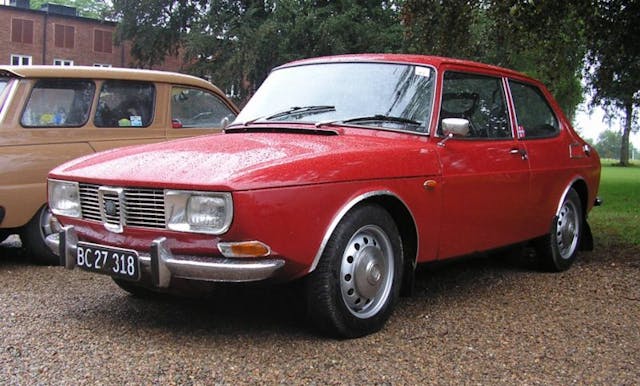
Historically, Saab’s unconventional styling and unusual technology limited the brand’s mass appeal in the U.S., but those same traits are what have earned the cars a loyal American fan base today. Loyal enough, in fact, that the Saab 900 Turbo landed on our 2023 Bull Market list.
The 99 preceded the 900 by a decade and was Saab’s first upmarket foray. Larger (though not outright large) and more luxurious than prior Saab models like the 93 and 96, the 99 brought the company a step closer to the mainstream. Gone were the company’s two-stroke engines, replaced with a two-liter inline-four sourced from Triumph, that could come equipped with a then-novel turbocharger. The 99 had a reputation for impressive build quality and had an abundance of trims available, including the sportier EMS. It was a massive sales success for the Swedish company and established the tone for Saab’s product line in the 1980s and 1990s.
In this update of the Hagerty Price Guide, the 99 Turbo and EMS versions increased by a stout 30 percent, pushing values of the Turbo models up to $21,600 for an excellent example. The EMS, meanwhile, now sits at $16,200 in the same condition. Apparently interest in the Saab 900 is carrying over to its older sibling.
1963-1969 Alpine GT4 +24%
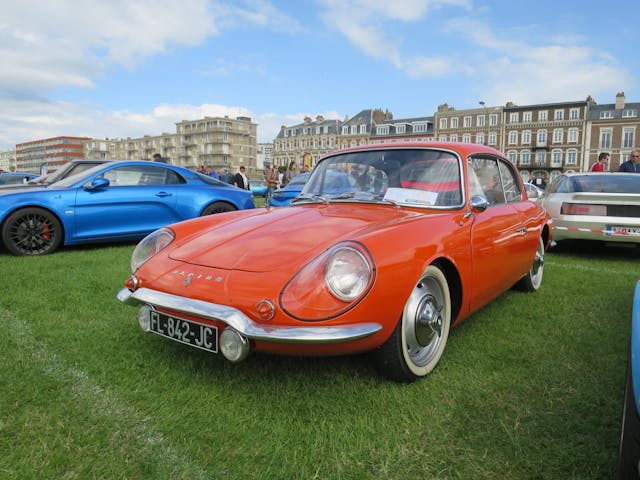
If an Alpine A110 is too mainstream for you, consider the GT4, Alpine’s four-seat take on the diminutive French giant killer. The GT4’s tall roofline makes it clear the car is a hopped-up people hauler and not a purpose-built race car, and it justifiably trades at a discount to the A110. It’s also one of the rarer cars we include in the Hagerty Price Guide, with fewer than 300 produced, making it one of the more challenging cars in our guide to value. That said, Artcurial sold a needy example over the summer with a mid-estimate result that allowed us to dial in pricing, which is now at $32,500 for an excellent car. If you’re keeping score, the six-figure A110, a different animal altogether, saw its values drop by two percent over the same period.
1959-1960 Oldsmobile 88 / 98 Holiday Coupe +24%
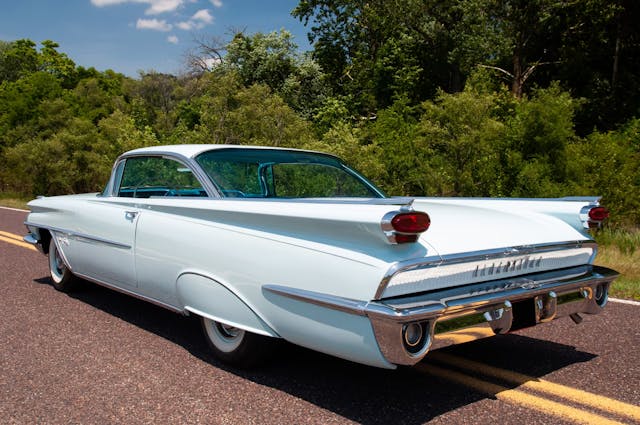
The 1959 model year introduced a more modern, “Linear Look” to Oldsmobile’s 88 and 98 line-ups, with the Holiday Coupes being the sleekest and airiest of all. This iteration only lasted two model years and served as a transition between the stylistic exuberance of the 1950s and the Jet-Age refinement of the early 1960s. Due to its short lifespan and its position as a liminal design, this era of Oldsmobile is often overlooked, and its value story underscores that—pricing was essentially unchanged from the start of 2019 to mid-2023.
That wasn’t the case at the end of last year, however, as several public sales confirmed that buyers are now paying higher prices. Rather than a sign of an impending boom for this era of GM full-size coupes, this is more likely an aftershock of the pandemic surge, with the Olds starting to catch up to where other contemporaries have already gone.
1962-1969 Abarth 1000 +24%
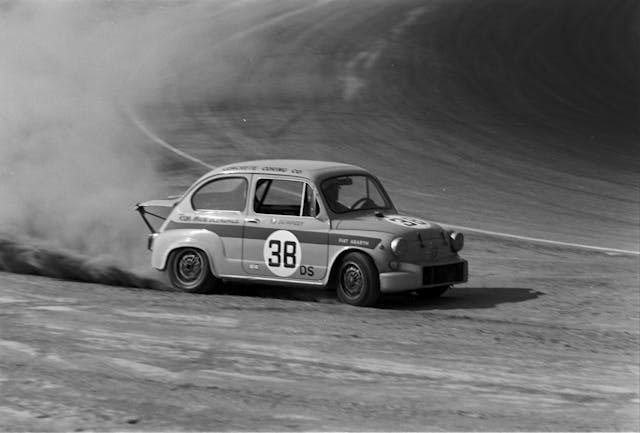
In the 1950s and 1960s, Carlo Abarth’s eponymous company found fame by manufacturing go-fast parts for Fiats and eventually tuning Fiat models for motorsports use. Abarth even transformed Fiat’s cute and cuddly 600 economy car into the pugnacious 1000 Berlina and 1000 TC racers for competition in Group 2 and Group 5 touring car races. A front-mounted radiator, bored-out engine, and hemispherical combustion chambers, among numerous other tweaks, changed the car’s nature entirely and resulted in much success in European events.
The market for this car had been relatively sleepy since January 2021, but sale and advertised prices for these models have been increasing consistently enough to prompt us to push values higher. Authenticity is always a question for these cars, but even at their new levels of $30,000 for the Berlina and $47,700 for the TC (both in “excellent” condition), they seem like a ton of fun for the money.
***
Check out the Hagerty Media homepage so you don’t miss a single story, or better yet, bookmark it. To get our best stories delivered right to your inbox, subscribe to our newsletters.
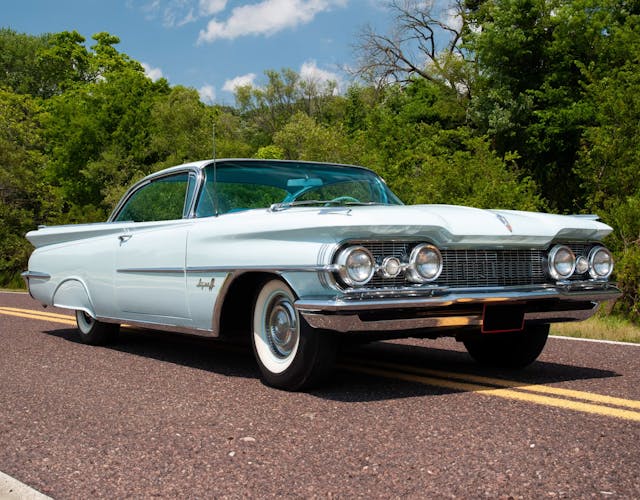

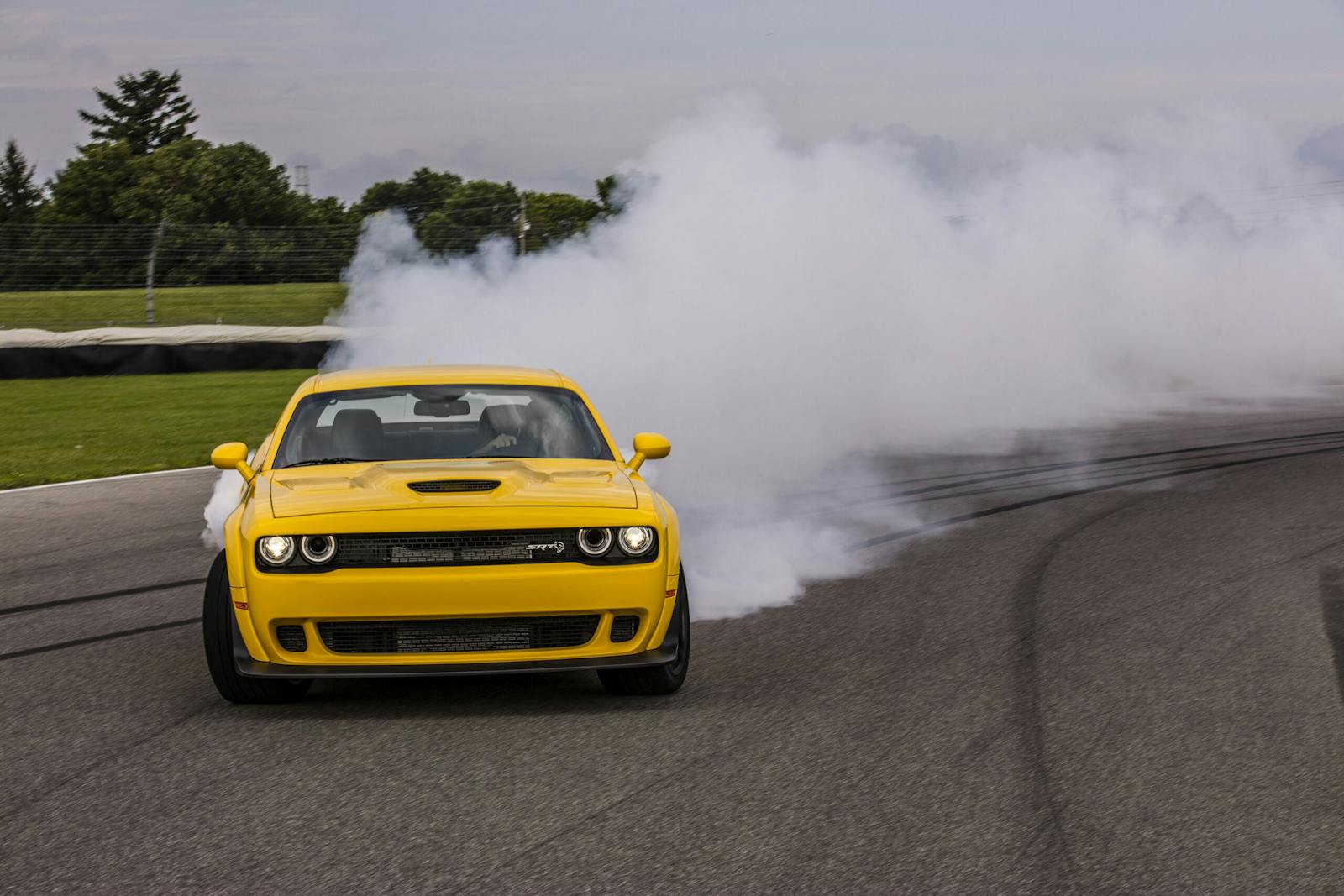
Even in a slow market- in which thousands of cars are being bought and sold- one can cherry pick examples of car that sold for higher (or lower) than expected prices. Statistically, it’s not surprising that the market might encounter someone who would love to have a nice ’59 Olds, and pay according to their passion. However, I’m not sure that says anything about the collector car market as a whole.
Yes, you need many sales to make the numbers meaningful.
Exactly. These are random sales, and are like “thinly traded stocks.” If it’s worth it to you, buy it. If not, move on.
The comparison to “thinly traded stocks” is right-on. All of the cars mentioned are interesting, and obviously worth the price paid to the purchaser. I suppose they could reflect some market forces, but they could also be statistical outliers. Perhaps article exists only to provoke comment with some interesting anecdotes.
The standard Hagerty commenter probably knows of one of these models.
Z432s have been steadily gaining recognition in the States, but the Alpine is a real sleeper. Interesting to see where the inquiries lie.
I really like that Alpine.
Z432 cars have been the gold standard for Datsun GT-coupes since day one, among those in the know. They used to be less expensive, but what wasn’t? Rarity and high performance; unbeatable combination!
The Olds: little different in value from Buick or Pontiac, and very similar cars — though not like latter days! A niche car, as ‘your father’s Oldsmobile’. Buick/Olds not for the three pedal guys; only PMD built those in quantity. Otherwise, all had lousy A/T’s, Dual-Range or Slim-Jim; a drug on the market, performance-wise! But that looks like a nice car, despite some waviness below the door line? Wick
I like the Olds, mainly cuz I like cars that ya don’t see everyday. Dad worked for GM all his working life, so I was exposed to all kinds of GM stuff from birth (’59). My favorite family car was the powder blue/white top/navy interior ’63 Buick Wildcat convertible Dad got for my maternal Grandmother. My first experience with a drop top, and Gramma was a famous lead foot (wealth has advantages) and had Thrush mufflers put on the Buick’s factory duals. I’d love to find one of those now.
From what I have read, the (true, not “Roto”/”Slim Jim”) Hydra-Matic was one of the better automatics of that era (as long as it was kept in adjustment), although some would say that the earlier ones (pre-Controlled-Coupling version) gave better performance. Of course, by 1960, the competition (especially Chrysler) had advanced the automatic state-of-the-art quite a bit, and the Hydramatic was definitely in its twilight years.
The Abarths seem to be too small of a sample size to have any meaning to anyone but members of the 1962-1969 Abarth 1000 Owners Association, and those ten folks already know about them. What an odd choice to include.
I have to agree. While I find the 1000 Berlina Corsa easily the most desirable of the cars listed (and I have owned a couple of the others listed as new cars), I don’t see how a price could be determined by less than a handful of sales over the last year or two. Put up a perfectly restored example with provenance, and the sky is the limit. ‘No reason that a properly documented car like this couldn’t trade for 6 figures in the right conditions, just as steel top Renault R5 Turbos are trading at $150K.
Trend? Small and curvy or large and square. For me it’s my small curvy Spitfire and my large Chevy square body. So I get it if that’s what we’re seeing.
Loved my Spitfire of many years past, but it was a decidely warm weather auto, despite me being far north. Those side draft carbs, ragtop and anemic heater just couldn’t take the real cold of Northern Minnesota. lol
Excluding the Olds, this list is ridiculous!
Exactly, I was surprised they included an American car in their list. A token I guess.
Yep, you’re dead on my friend!
How do you reckon the Olds is a token? It’s a list of the fastest-appreciating cars, not a list of cars that people like, and the Olds is the only American car gaining value at a comparable rate. It’s an outlier, not a token. Interest in most of the Boomers’ dream cars, especially Baroque Boats like this, is waning fast as that generation dwindles away.
Agreed
Agree except maybe the Nissan (Datsun)
Olds was the only real car on the list !!
The ugliest, you mean! The other cars are *real* cars; the Olds was just a baroque piece of guy jewellery.
“Real” in what ways, that the others are not?
It’s not a “list”, it’s a listing of the cars that are appreciating right now. American cars are not, with a few exceptions such as that Olds (for classic old Boomer reasons: hardtop coupe, the dreary, unaccountable fave of those born before 1964).
For a bit of the best of both worlds put a hitch on the Olds and trailer the Arbath.- ” I took my Cobra on down the track…hitched to the back of my Cadillac”
Now, that makes the most sense of all, Paul ! I pulled my Dixie boat with my Carolina blue Chevelle convertible back in the day. LOve all cars, peiod. Just don’t see me hooking up and towable to one of my 911’s.
The 1970-1972 Nissan Fairlady Z 432 is a nice car. I’d still rather have a 260Z or something else instead.
Back in the 60s, my late brother in law had a 59 Olds. Beautiful car. He dubbed it “the Italian War Wagon”…..
We really enjoyed our ‘60 Olds 88 4dr Htp swapping our ‘55 Olds 2dr Htp back in 1962. Enjoyed this article. Thanks
Wish I still had my ’55 Olds 2dr http.
Got my driver’s license on a turquois and white 1955 88 given to me by my cousin in 1965. Loved that car. Rebuilt the 4 barrel Rochester on it with a $5 Hy-Grade carb kit.
My first car at sixteen was a 54 Hdt. Sold it in 67 and bought another last year. Driving it brings back memories of old.
Wow the 240Z brings back a lot of memories. My best friend had one and I wish to this day that he didn’t let it go. I miss you John. I still have the pic of you and the Z. Love you man!
I had a ’59 Olds Super 88 in high school. It had the coolest speedometer that changed colors as speed rose.
I had a girlfriend who was in college about 60 miles from where I lived so it served me well as a cruiser between my town and the college town she was in.
And there was that 2 acre back seat……
My buddy in high school had one of these 59 Olds 4door. We used to triple date in that car. Back seat was so big two couples could sit next to each other without touching each other. The power front bench seat could do some amazing things also………
I believe in this case that “acre” should be spelled “ache her”
yea u rite!!! A’69 banana Satelite (imposter Roadrunner) was 1.5 acres!
At Mecum in Kissimmee Florida, a 79 Dodge Magnum, slightly modified ( most mechanical ) brought $36000. That’s way above what most Vettes of the same era get. And numerous non-auction examples have jumped into the mid-tens status. Not a trend-setter yet, but these are coming of “age” so to speak. But it seems most malaise ( Mopar especially ) are ignored.
Its OK that our host gave some props to a bunch of non made in the USA cars. I still enjoy reading their opinions. Watching Mecum and Barrett-Jackson reassures us that in The USA made in The USA is around 80% of what we care about in The USA as our collector cars. And we will continue to tolerate and make you 20%’ers feel beloved here in The USA.
Big surprise. Look at the intended audience. Looks like Happy Hour in The Villages.
The article is not about props to non-American cars. It’s about which cars are gaining in value. Most of them are NOT American cars. Full stop.
Buy what you like and don’t worry about trends as long as the one you want isn’t going through the roof due to speculators. A car should not be an ‘investment’ any more than the house you live in.
I’m making a bet on the Lexus SC430. A beautifully built, reliable, and refined high-end grand touring car for 2. I think their prices are at a nadir…especially for examples that exhibit proper care. So I just bought one- an immaculate 2006. I didn’t buy it with investment in mind, however- I bought it because is a great car and it has a solid reputation for comfort and reliability. And I personally love its looks.
They are attractive cars, indeed. A co-worker had one (interestingly, her hobby car was a 450SL), and it was a really nice ride.
What is the price range for the Olds?
Thomas, our Price Guide has them coming in around $44k for a top-flight #1 condition car down to about $10k for a decent driver-quality example.
And the corvairs are where? Right! Glad you appreciate my business
Hi Barbara,
Corvair values are generally stable, with the conditions of high-quality cars going up and driver-quality cars declining somewhat. As a result, they won’t find themselves in a story like this that focuses on the cars with the biggest value gains last quarter (and fortunately, they won’t be in the group of the most significant value drops, either).
The latest Corvair values can be found here.